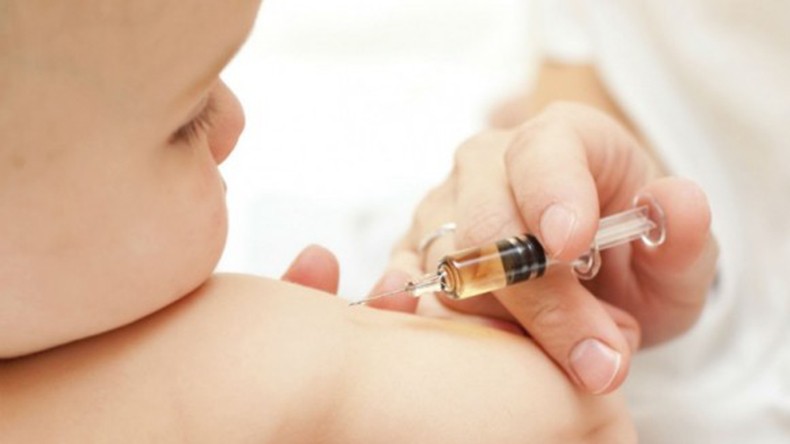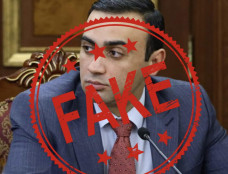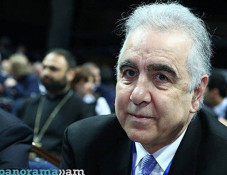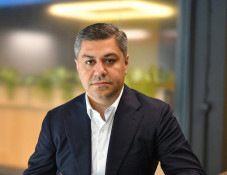
Parents are Concerned about the Call to Vaccinate their Children Once Again
Parents in Armenia are quite concerned. Children who have already received a planned vaccination against polio are invited to the polyclinics to receive it once again. Besides, it does not matter how long has passed since the last vaccination. Especially, children under 2-6 are invited to the policlinics in the case when children usually receive vaccination against polio at the age of 1.5. The next vaccination against polio children should receive at the age of 6.
To discover more on the issue, panorama.am interviewed the National Immunization Program Manager of the Republic of Armenia Gayane Sahakyan.
-What is the reason for inviting children who have already received vaccination against polio to receive it once again?
-The answer lies in the policy of Global Polio Eradication Initiative. In other words, there are a number of measures which are taken not only in Armenia but in all over the world. First, the vaccine has been changed. Oral polio vaccine which has long been used in Armenia protects against 3 types of the disease. One of the components of oral polio vaccine against the second type must be removed. The manufacturer is still the same, but there must be some changes in the content of the vaccine. The trivalent OPV has been changed to a bivalent one. The policlinics need to do an additional dose of OPV, so as to strengthen children's immunity level against the second type.
-So, why did they decide to remove a component from the vaccine?
-The answer is simply: not to artificially promote the resumption of the virus. The type 2 serotype component included in the vaccine can be subjected to mutation, plus it has caused serious disease so they decided to remove the component.
-How do they define who should be vaccinated again?
-Children from those districts where vaccination rates were rather low will need to receive the vaccine once again. The target rate for polio vaccination should be 95%.The rate was rather low in Yerevan and Dilijan. In provinces the rate was of about 99 per cent and in Yerevan it was 92-93 per cent even up to 95 per cent not more. Consequently, children under 2-6 are invited to the policlinics to receive the OPV only from those districts where low rates have been recorded.
-In case a child regularly received all the necessary vaccines receiving the last OPV only two months before, then if the latter receives additional OPV at the age of two, wouldn't there be any problems?
-It is a matter of epidemiological pattern. Most of the people complain saying doctors need to invite only those children who haven't received the vaccine at all. In such a case, we will not simply be able to ensure security in those districts. Actually the level of risk is quite low but one should never say never. In case such a virus starts to circulate even vaccinated children would be in danger. This is the vaccine, which has almost no any contradiction. If in case of any other vaccines fever and runny nose can be a contradiction, the thing is not the same with OPV, as this is the vaccine which is 99 per cent safe.
-What is the number of vaccines we have in Armenia at the moment? There is an opinion according to which there is a need to get rid of the remaining vaccines, so the policlinics simply want to use them by additionally vaccinating children.
-Currently, the amount of vaccines at our disposal is not so big. It is quite possible that we face hardship in connection to the vaccine supplies. The reason is that the change in the content of the vaccines takes place on the same day in all over the world.
P.S. We would like to emphasize that panoarama.am is not trying to do a propaganda for receiving the OPV or not. But it's worth noticing that after reading the answers, some questions still remained.
If there are children who haven't received the OPV then why those are invited to the policlinics who have already received one?
If in a neighbouring country cases of diseases have been witnessed and because of that policlinics invite children for additional vaccination and that is urgent, though we live far from the countries where there are cases of infection, then why not all policlinics behave that way. There is a problem passing from country to country, but not within the country.
If there is a serious risk for contagion, then apart from vaccination why there is taken no measure to speak about that publicly on how people can be protected and which countries to fear as they did in case of H1N1, though very late.
Newsfeed
Videos






























